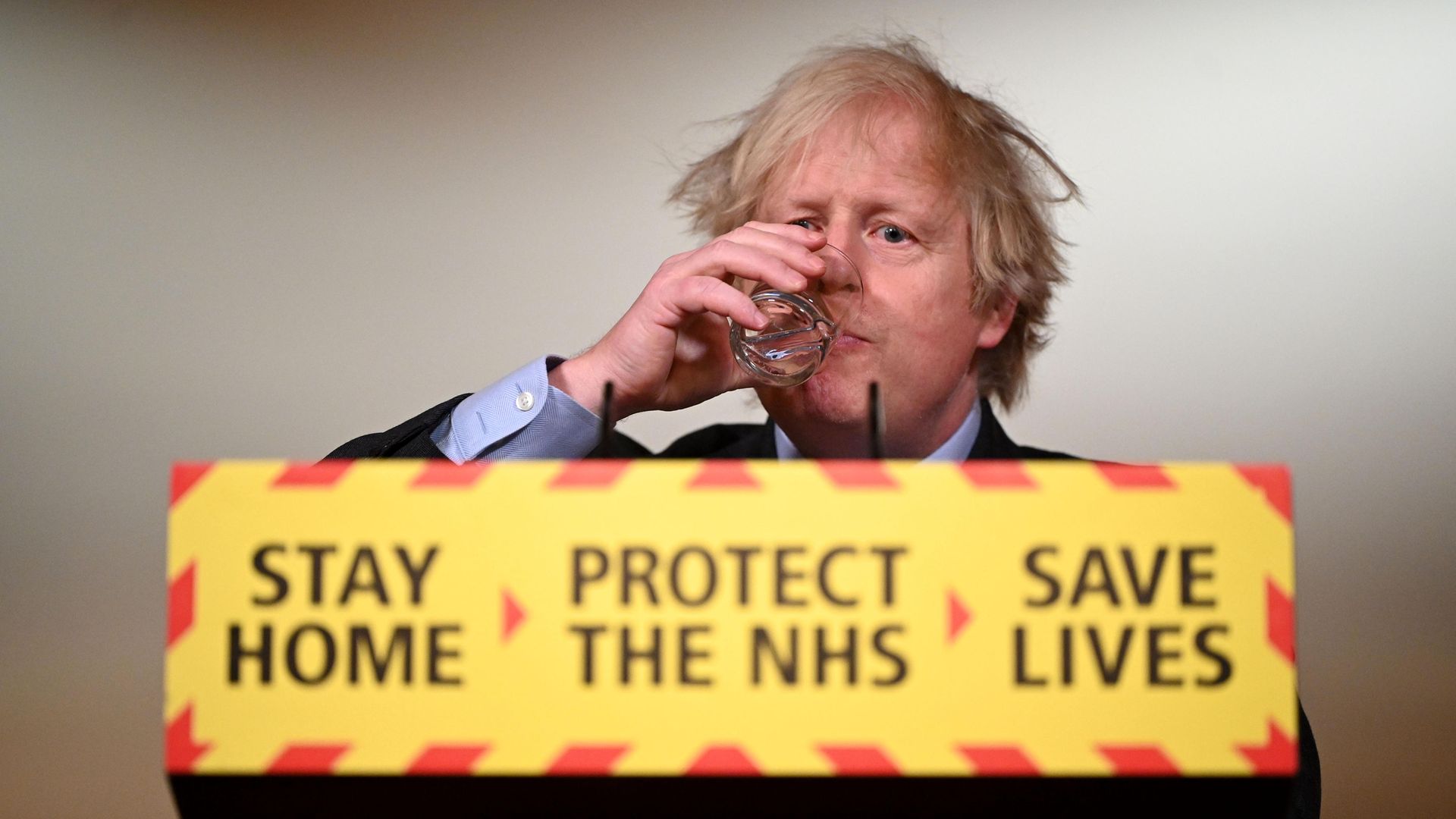
Covid-19 has overshadowed the splits over Brexit that dominated the last general election
Boris Johnson was only three months on from his December 2019 election win when a pandemic was declared. The world has changed entirely since then, and the UK has suffered enormously. More than 125,000 people have died of COVID-19. Per capita, this is among the worst figures in the world. Lockdowns help with the spread of the virus but have damaged the economy and have seriously disrupted care for the elderly, children’s education and inflicted widespread psychological harm.
In the US, our Cometrends national election survey indicates Donald Trump’s poor handling of the pandemic contributed significantly to his electoral defeat.
In sharp contrast, polling trends show Johnson and the Conservatives are weathering the COVID storm. Although they suffered a marked loss of support after Keir Starmer replaced the unpopular Jeremy Corbyn as Labour leader and the pandemic crisis deepened, the Conservatives have regained the lead – running ahead of Labour by around 44% to 36%.
Our representative national survey of 3,002 British voters conducted by Deltapoll indicates that the government’s successful rollout of COVID-19 vaccines is the key reason for this renaissance.
When asked about what were the most important issues over the year, nearly four people in five cite the pandemic as a “top three” topic and nearly three in five designate it as the single most important one.
Although several other issues are ranked in the top three, none of them is chosen as the single most important issue by even one person in six. Only 4% picked Brexit as the most important issue, indicating that it has been completely overshadowed by the pandemic.
The government’s ability to profit politically from the current situation depends heavily on how people think Johnson and his colleagues are handling the crisis. The upward trend in support started in late December, shortly after the vaccine rollout began. Just three months later, over 37% of the UK’s adult population had been vaccinated. This is a far higher number than have been vaccinated in most other democracies.
When asked which party is best able to deal with their most important issue, 39% of those saying that COVID is the most important one chose the Conservatives. Only 21% selected Labour. The Conservatives also enjoy a sizeable edge (44% to 21%) on the economy. In contrast, Labour has a huge lead on the NHS. But this isn’t very helpful to the party since less than one person in ten rates the health service as the most important issue.
There is a strong correlation between how voters judge the government’s handling of the pandemic, how they intend to vote and their views on the prime minister. The percentage intending to vote Conservative climbs from only 9% among those who disapprove of the government’s performance on the issue to 71% among those who approve. Similarly, average feelings about Johnson on a zero (strongly dislike) to ten (strongly like) scale increase from a score of only 2.3 among those who disapprove of the government’s performance to 7.6 among those who approve. So it’s clear that Johnson’s performance is closely tied with voting intentions.
These relationships hold up in statistical analyses that control for the effects of several other factors that influence voting, such as leader images, partisan attachments, left-right ideology, attitudes towards Brexit and evaluations of government performance on the economy and the NHS. Taking all of these factors into account plus several sociodemographic characteristics (age, education, ethnicity, gender, income, country of residence) the COVID-19 effect remains very strong.
For an average voter, the probability of voting Conservative climbs from 0.34 (on a zero to one scale) to 0.46 as assessments of the government’s performance move from “strongly disapprove” to “strongly approve”. This effect is supplemented by a powerful indirect effect working through feelings about the prime minister. As judgment’s about the government’s pandemic performance become increasingly positive, feelings about Boris Johnson climb from 2.4 to 8.0 (on a zero to ten scale). This matters because studies of voting in Britain show that party leader images are powerful predictors of voting behaviour.
Despite lockdown failings, positivity about the vaccination programme in the UK is clearly paying political dividends to Johnson and his government. Whether this will continue is of course unknown. The pandemic may be retreating, but it is not over. New variants of the virus may erode the efficacy of current vaccines and precipitate further lockdowns.
The economic carnage caused by measures to combat the pandemic will probably last well into the future, and their political effects will last longer than the pandemic itself. Unemployment is now 5.1% and rising and it would be much higher if the millions of workers on furlough programmes were counted as jobless. Possible inflationary and other adverse consequences of the huge and growing debts incurred by the government in fighting the pandemic also remain uncertain.
That the ongoing battle against COVID is occurring in the context of major adjustments to the UK economy caused by Brexit magnifies the uncertainty. Although polls currently favour the Conservatives, it is decidedly premature for the prime minister to feel confident of victory in the next general election.
This article was authored by Paul Whiteley – professor at the University of Essex, Harold D Clarke and Marianne Stewart – professors at the University of Texas at Dallas. It first appeared at theconversation.com.









